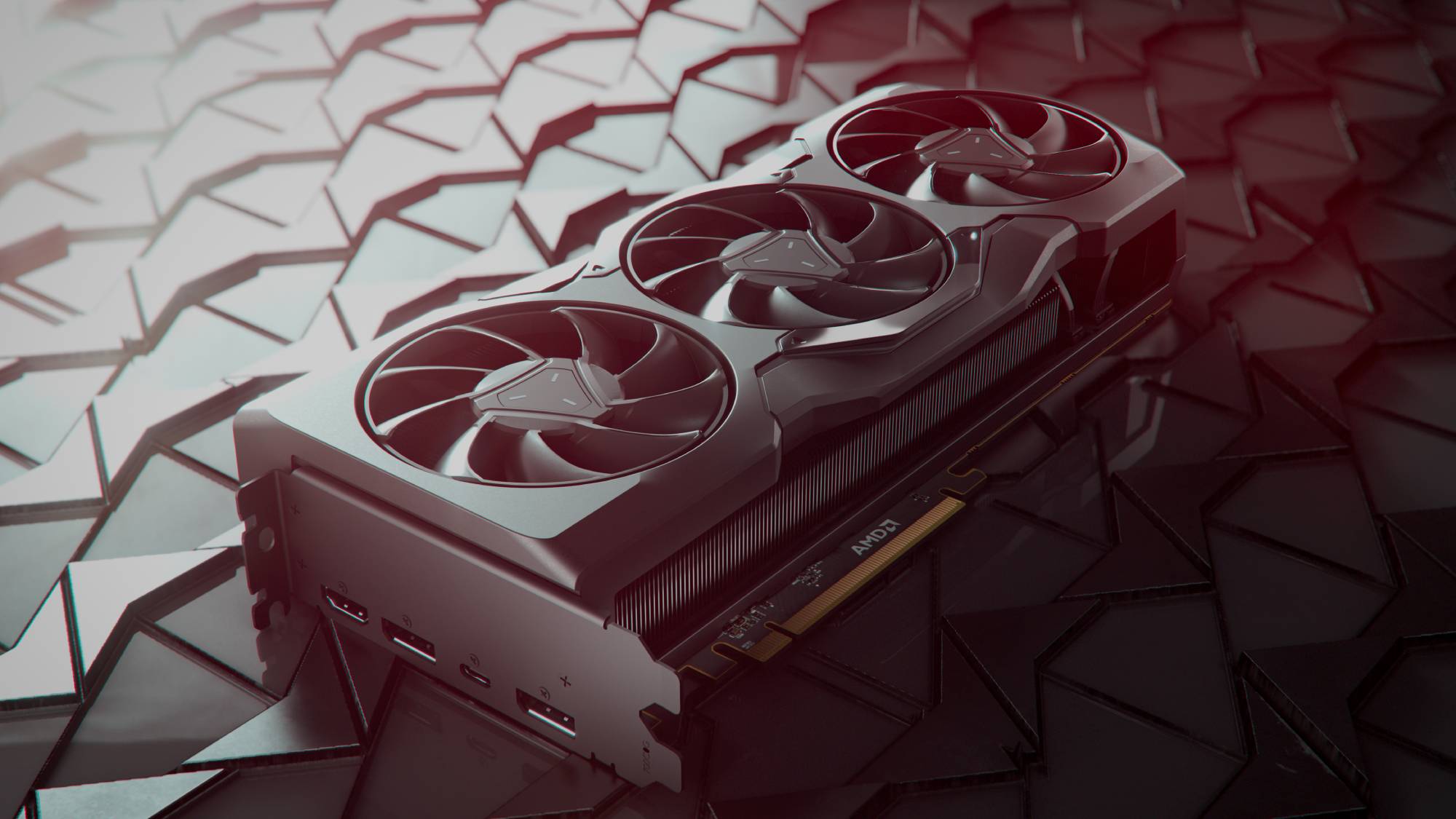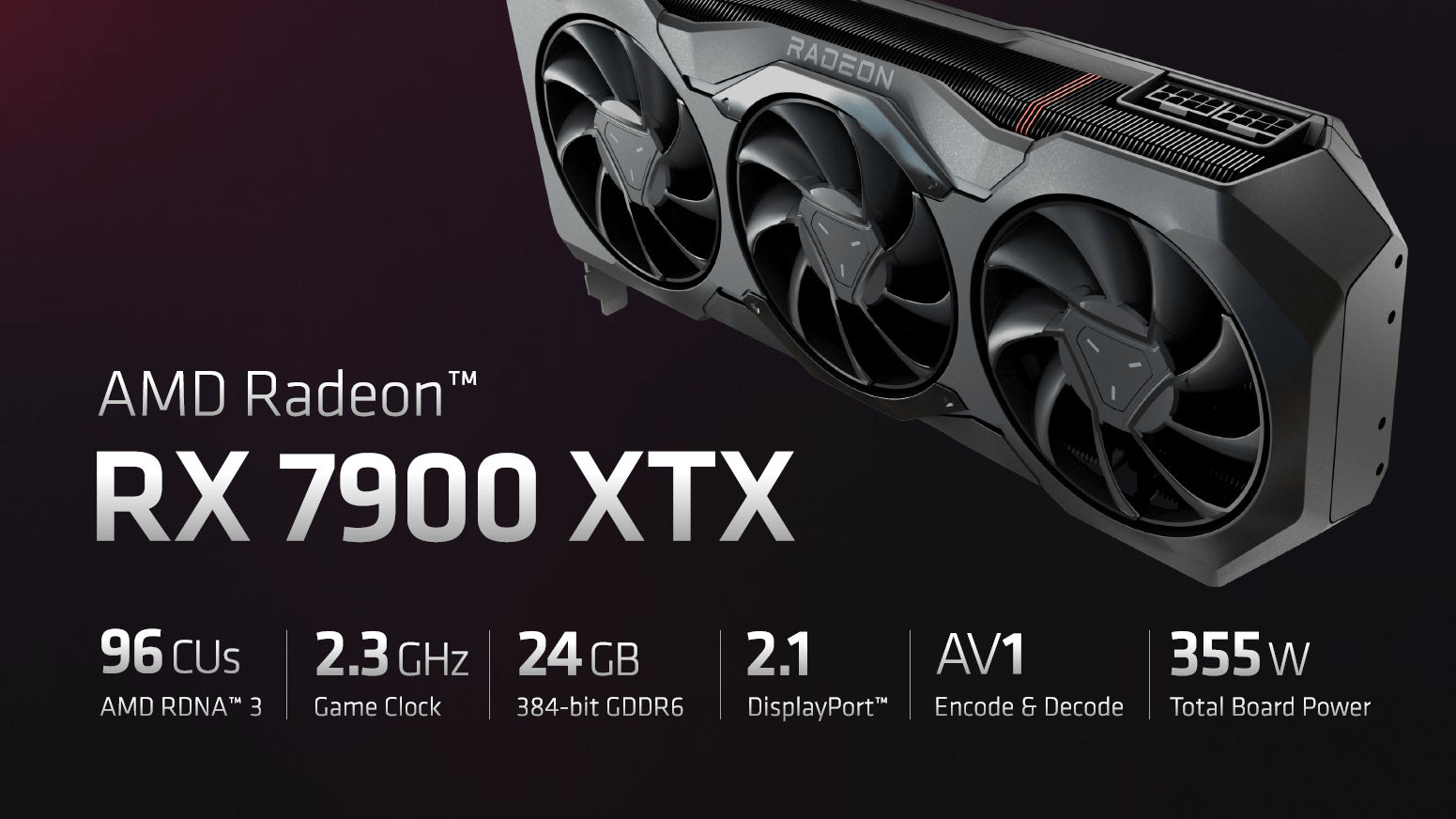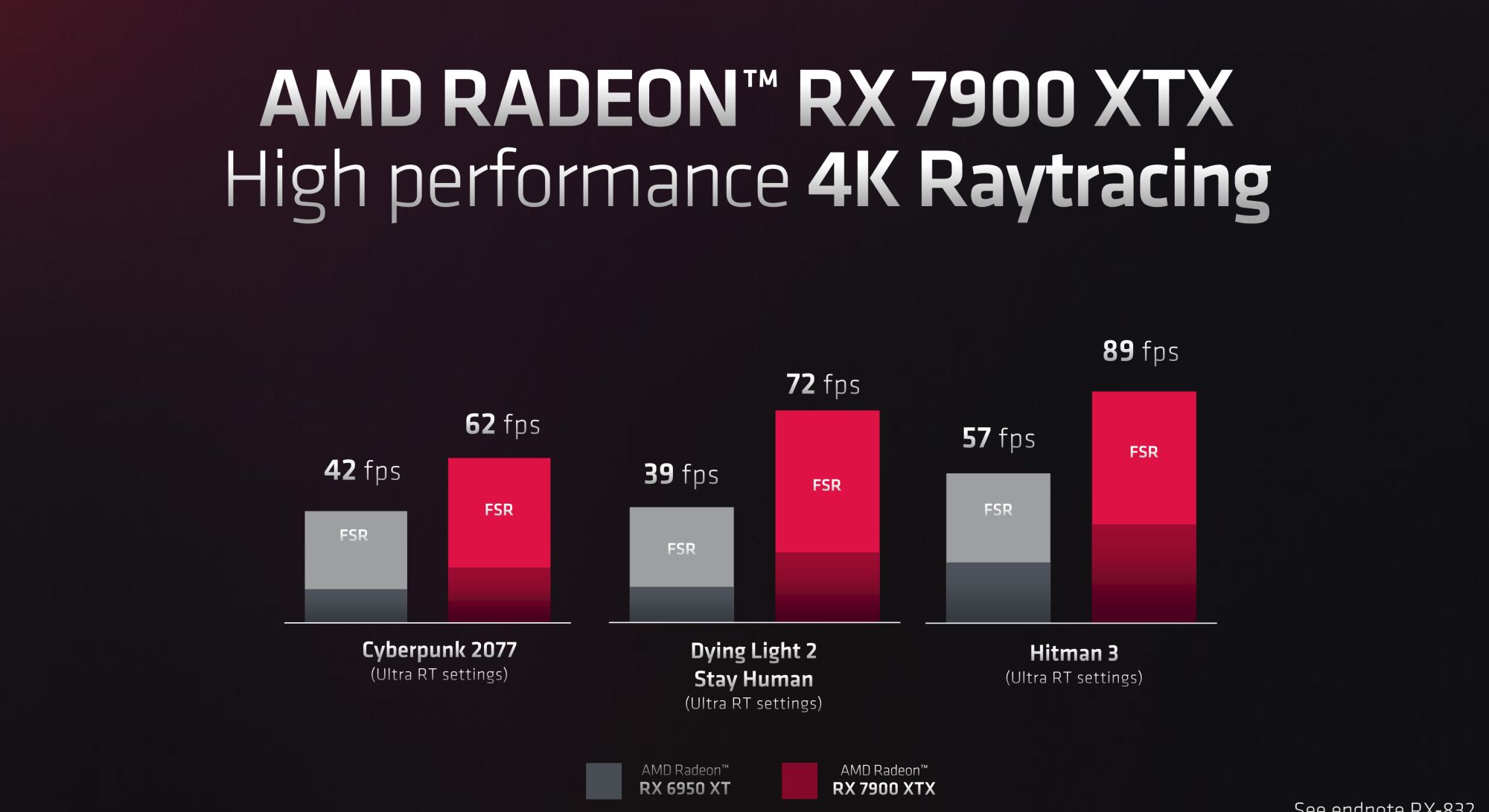Nvidia RTX 4090? No thanks, I’m more interested in what AMD has to offer
AMD won’t beat the RTX 4090, but gamers should be paying attention

Sign up for breaking news, reviews, opinion, top tech deals, and more.
You are now subscribed
Your newsletter sign-up was successful
Well, that’s our third big GPU launch of the year out of the way. You can check out our live coverage of AMD’s Radeon 7000 launch event as it happened, where the scrappy underdog of the GPU industry revealed two new GPUs: the Radeon RX 7900 XT and RX 7900 XTX.
Now, I was disappointed not to see any more affordable graphics cards show up during the reveal, but the pricing on show here is definitely promising. With a flagship that costs $999 - a full six hundred bucks less than Nvidia’s high-end RTX 4090 - we can hopefully expect some very competitive pricing on the midrange GPUs like the expected RX 7700 XT.
In a time when the cost-of-living crisis is squeezing households, and new GPUs are being endlessly scalped for as much as double the retail price, seeing Nvidia’s main competitor say ‘no, thank you’ to driving generational price increases is fantastic. Intel has been pulling similar moves with its Arc GPUs, opting for more sensibly-priced cards for 1080p gaming with its Arc A770 and A750.
The name of AMD’s reveal event for the Radeon 7000 cards was ‘Together We Advance_Gaming’. Pointless underscores aside, this is the sort of advancement gamers really need: not ridiculously expensive, uber-powerful GPUs, but effective gaming solutions that don’t cost an arm and a leg to buy.
Team Red is going to war - and it's got the moral high ground
The thing is, it’s starting to feel like Nvidia doesn’t care about consumers. That’s a harsh statement to make, I know, but let’s look at the evidence. The RTX 4090 sold out near-instantly, as Nvidia no doubt knew it would, so the ludicrously high retail price didn’t matter to the GPU giant.
Should Nvidia have set up a lottery system further in advance? Almost certainly, yes. That would’ve led to at least a fairer distribution of the cards upon release, and hopefully a bit less eBay scalping. It feels like Nvidia has punted its $1,599 GPU out into the world and sat back to watch people fight over it. Choosing not to release the (slightly) more affordable RTX 4080 alongside it is telling, too - AMD will be launching both of its new cards together on December 13.
Don’t even get me started on the power issues behind the RTX 4090, either. Nvidia’s concerning radio silence regarding the incendiary malfunctions of the card’s power adapter is bad enough, but the GPU also guzzles power compared to the relatively sensible 355W and 300W requirements of the new Radeon cards - and my energy bills aren’t getting any cheaper.
Sign up for breaking news, reviews, opinion, top tech deals, and more.
Meanwhile, AMD appears to be positioning itself very firmly in the corner of gaming consumers – well, as much as any huge corporation can do, at least. This is true of both its GPUs and CPUs; the Ryzen 7 7700X and Ryzen 7 5800X3D are both stellar processors for gaming rigs. While Nvidia is practically guaranteed to retain the high-end edge, nobody really needs an RTX 4090 for gaming, even at 4K. If AMD puts out a $500 RX 7700 XT, it might become the new best choice for midrange gaming.

Software, not just hardware, is the new frontier in this conflict
With all the excitement of new graphics cards, it’s important not to overlook the other stuff Team Red announced at the Advance_Gaming event too. Chief among this was FSR 3.0 - that’s the third generation of AMD’s FidelityFX Super Resolution upscaling technology, its competitor to Nvidia’s DLSS.
FSR hasn’t enjoyed quite the same acclaim as DLSS, but it works just as well, and a new generation of the software to counter the newly-arrived DLSS 3 was a vital inclusion. FSR 3.0 will have the same frame-generating capabilities as Nvidia’s latest version of the upscaling tech, and claims to boost performance by up to double that of FSR 2.0.
Potentially even more interesting is a new feature called Hyper-RX. AMD was a tad coy about the details of this new addition to the Radeon Adrenaline software package, but it appears to be a graphics driver improvement that can be activated with one click and can boost performance by up to 85% while also reducing input latency by as much as 66%.
It’s unclear how exactly Hyper-RX works right now, or how it interacts with FSR, but it’s a seriously impressive proposition on paper. It should compete with Nvidia Reflex, Team Green’s latency-reducing tool. Oh, and one more thing: the new Radeon cards are the first consumer GPUs to use the new DisplayPort 2.1 ports.

In short: I can’t wait to get my hands on these cards
That new display interface really shouldn't be underestimated. DisplayPort 2.1 is capable of outputting 8K at 165Hz and 4K at a stupidly fast 480Hz. Sure, it’s another case of ‘do we really need this?’, and there’s no chance the cards will hit those framerates in the vast majority of games, but it’s a big middle finger to Nvidia when the RTX 4090 is still stuck with DisplayPort 1.4, which maxes out at 8K at 60Hz, or 4K at 120Hz.
It’s impossible at this point for us to properly gauge the performance of the RX 7900 XT and XTX, but AMD did provide us with some stats from internal testing. The flagship card cleared 60fps in Cyberpunk 2077 with maximum settings and ray-tracing on, an impressive showing (although we don’t know if FSR or Hyper-RX were used for this).
The bottom line is that while AMD isn’t going to beat Nvidia in the ultra-performance space, it literally doesn't need to. All the red menace really needs to do is provide a better price-to-performance ratio than Nvidia, and it genuinely looks like it might. There’s no sign of cheaper RTX 4000 cards from Nvidia yet, so we could be looking at another race in early 2023.
Lastly, a neat little side effect of the Radeon 7000 announcement is that we’ll probably see Radeon 5000 and 6000 GPUs get some decent price cuts this Black Friday. Some of these cards are still great choices for gaming at 1080p and 1440p, so if you want to snag a great graphics card deal, keep your eyes peeled.

Christian is TechRadar’s UK-based Computing Editor. He came to us from Maximum PC magazine, where he fell in love with computer hardware and building PCs. He was a regular fixture amongst our freelance review team before making the jump to TechRadar, and can usually be found drooling over the latest high-end graphics card or gaming laptop before looking at his bank account balance and crying.
Christian is a keen campaigner for LGBTQ+ rights and the owner of a charming rescue dog named Lucy, having adopted her after he beat cancer in 2021. She keeps him fit and healthy through a combination of face-licking and long walks, and only occasionally barks at him to demand treats when he’s trying to work from home.